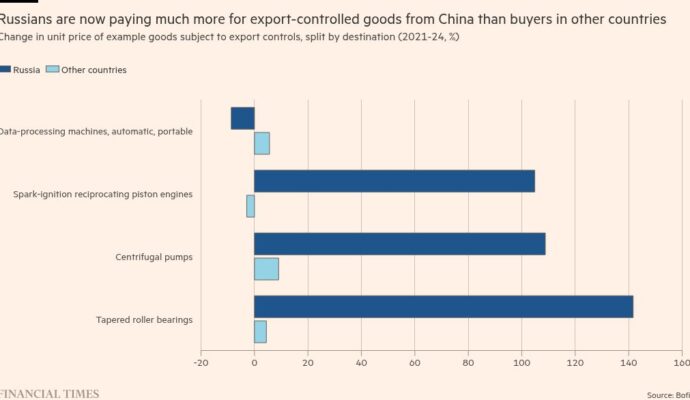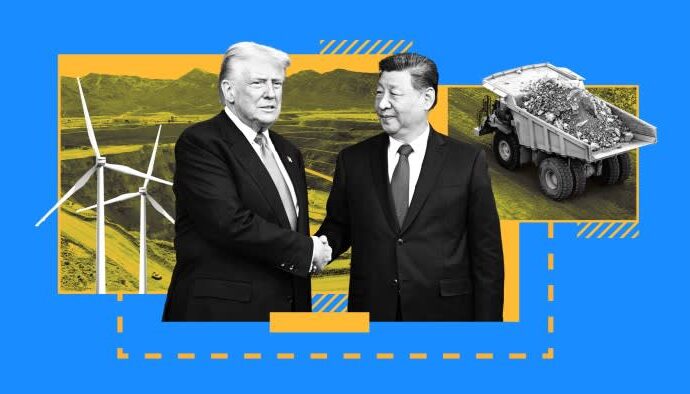
Unlock the White House Watch newsletter for free
Your guide to what Trump’s second term means for Washington, business and the world
Even by the standards of Chinese “wolf warrior” diplomats, the language was extreme. If a “filthy neck sticks itself in uninvited, we will cut it off without a moment’s hesitation,” wrote Xue Jian, Beijing’s consul general in Osaka, in a social media post earlier this month. The comment was directed at Japanese Prime Minister Sanae Takaichi after she had suggested that Tokyo might consider military involvement if China attacked Taiwan. The post was later deleted, but Beijing has still doubled down on the outrage, moving to limit travel by Chinese to Japan, sending its coastguard to patrol disputed islands and threatening imports of Japanese seafood.
China, which nurtures bitter memories of Tokyo’s brutal occupation of much of the country between 1931 and 1945, says it fears a revival of Japanese militarism. But Takaichi’s comments were in many ways a statement of the obvious. Legislation passed in 2015 allows Japan’s government to use its military as part of a collective response to any “existential threat”, even if it is not directly attacked. A Chinese invasion of Taiwan would be a huge threat to Japan’s fundamental interests including its access to vital sea lanes, the safety of its citizens in the country and the future of democracy in the region. A Taiwan conflict involving the US would also almost inevitably spread into Japan’s territory.
Still, while Takaichi was right that Tokyo would have to consider military involvement in such a situation, it would have been wise not to discuss the possibility so publicly. Cautious language and consideration for historical sensitivities are often virtues when it comes to relations with China. This is not a diplomatic pot that needs further stirring.
US President Donald Trump’s recent visit to Japan was a success for Takaichi, and the US ambassador has assured her of “unshakeable” backing in the current dispute. Even so, Washington is clearly a less reliable ally and defender of regional stability than it used to be. Takaichi, who has promised to accelerate spending on defence but is contending with a weak domestic economy, ought to focus on ensuring Japan is better able to maintain its own security. She should also build on her promising first summit with South Korean President Lee Jae Myung to improve ties with Seoul and other allies in the region and beyond.
China has even more reason to reflect on the row. Its growing military power and the breakdown in the US-led international order is fuelling a sense of hubris in Beijing. Fresh from facing down Trump in the tariff war, Chinese leader Xi Jinping may feel he can easily deal with Takaichi. But Beijing’s bullying of its neighbours could easily backfire.
Trump’s chaotic and self-interested approach to foreign policy is forcing US allies to question their reliance on Washington for their security. In Japan, the ruling Liberal Democratic party plans to review the country’s long-standing three principles of not possessing, producing or permitting the introduction of nuclear arms.Local media suggest only the third principle, which blocks the US from stationing nuclear weapons on Japanese soil, is currently up for serious discussion. But the willingness to test Tokyo’s anti-nuclear taboos is an important straw in the wind.
China has already criticised Takaichi’s government for being “ambiguous” about its commitment to the non-nuclear principles. But if Beijing wants to prevent greater militarisation in the region, it should commit to a peaceful resolution of the Taiwan issue and try to look less like a threat to regional stability. Its diplomats ought to be a lot more diplomatic too.


